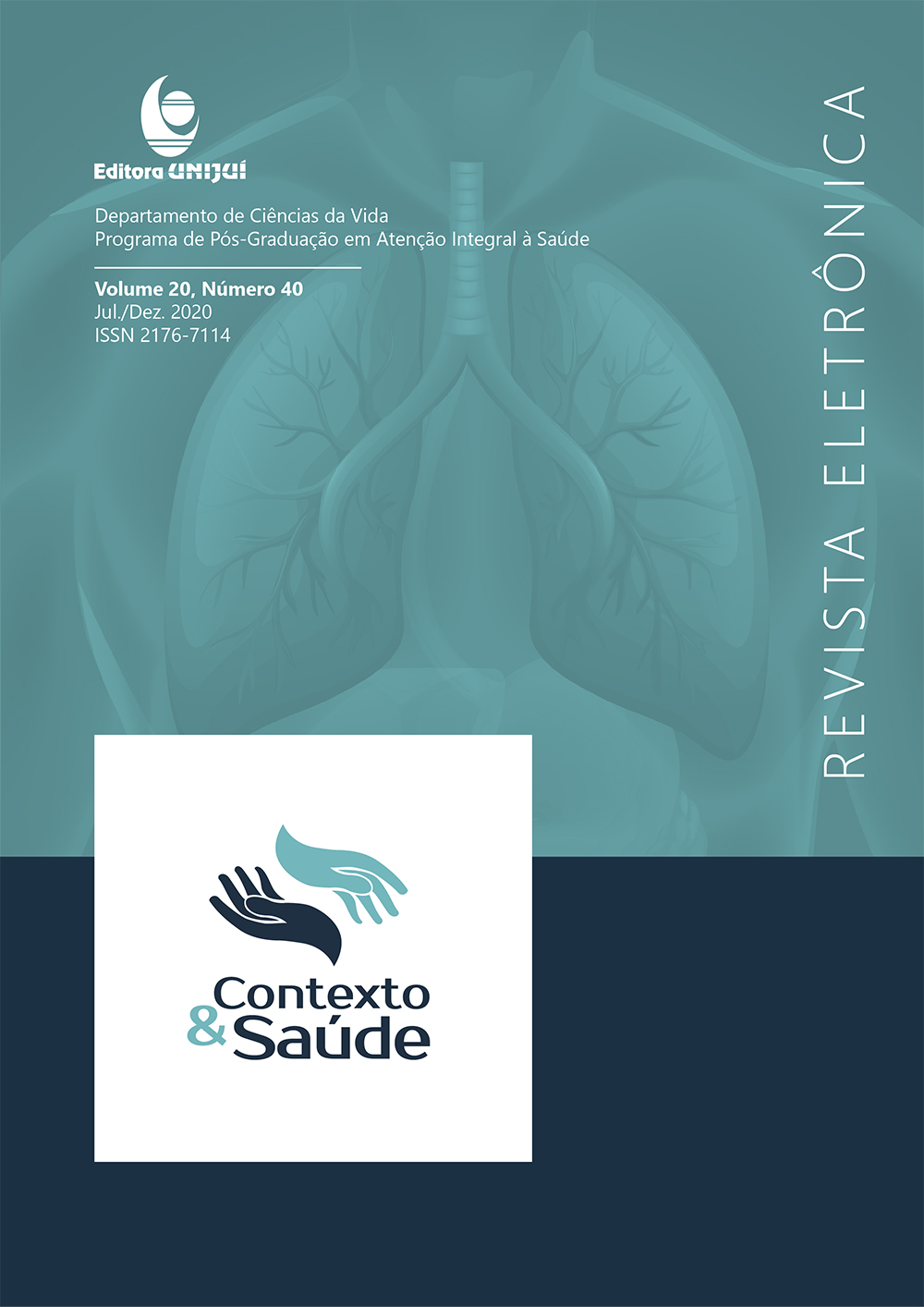SOCIAL REPRESENTATIONS OF INSTITUTIONALIZED ELDERLY ABOUT HEALTH PROMOTION BY DIALOGUE ACTIONS
DOI:
https://doi.org/10.21527/2176-7114.2020.40.267-274Keywords:
Social representation. Seniors. Institutionalization Health promotion. Dialogic ActionsAbstract
Objective: to know the social representations of institutionalized elderly through dialogic actions. Method: descriptive qualitative study, anchored in the Theory of Social Representations. We used group dialogic meetings to promote health and semi-structured interviews. The results were processed by the IRAMUTEQ software. Results: Among participants, most were women, with an average age of 77 years, 06 were widows, the predominant education was incomplete elementary school, the time of residence in the LSIE ranged from one to nine years. The software concentrated the answers of the elderly from the interviews in three classes, so named: 1) Chatting to meet other people, live with them and strengthen me; 2) Participating in the meeting_meeting helps to face the institutionalized life; 3) It is never too late to take care of health. Final Considerations: The statements elaborated by the participants reveal that social interaction promotes the production and exchange of knowledge, the strengthening of interpersonal relationships, the sharing of lived experiences and the establishment of mutual trust. The activities proved to be effective for the elderly, helping them to (re) signify institutionalized life.
Keywords: Social representation. Seniors. Institutionalization Health promotion. Dialogic Actions
Downloads
Published
How to Cite
Issue
Section
License
By publishing in Revista Contexto & Saúde, authors agree to the following terms:
The works are licensed under the Creative Commons Atribuição 4.0 Internacional (CC BY 4.0) license, which allows:
Share — to copy and redistribute the material in any medium or format;
Adapt — to remix, transform, and build upon the material for any purpose, including commercial.
These permissions are irrevocable, provided that the following terms are respected:
Attribution — authors must be properly credited, with a link to the license and indication of any changes made.
No additional restrictions — no legal or technological measures may be applied that restrict the use permitted by the license.
Notes:
The license does not apply to elements in the public domain or covered by legal exceptions.
The license does not grant all rights necessary for specific uses (e.g., image rights, privacy, or moral rights).
The journal is not responsible for opinions expressed in the articles, which are the sole responsibility of the authors. The Editor, with the support of the Editorial Board, reserves the right to suggest or request modifications when necessary.
Only original scientific articles presenting research results of interest that have not been published or simultaneously submitted to another journal with the same objective will be accepted.
Mentions of trademarks or specific products are intended solely for identification purposes, without any promotional association by the authors or the journal.
License Agreement (for articles published from September 2025): Authors retain copyright over their article and grant Revista Contexto & Saúde the right of first publication.

